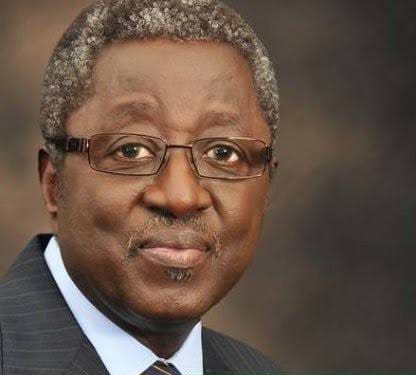
Professor (Asso.) Elias Nankap Lamle
Centre for Conflict Management and Peace Studies
University of Jos
This political alchemy is a powerful symbol of leadership that extends beyond personal gain, beyond the confines of political cycles. It underscores the enduring impact that a leader with vision and mentorship acumen can have on shaping the trajectory of an entire region. As Plateau State continues to bask in the glow of this political renaissance, it serves as an inspiration and a challenge for politicians nationwide. The narrative is clear: leadership is not solely about occupying positions of power; it’s about strategically empowering and mentoring individuals who, in turn, can become architects of positive change. Former Governor David Jang and Governor Caleb Mutfwang’s bold move has redefined political norms, leaving an indelible mark on the political landscape of Plateau State legacy that echoes far beyond the boundaries of a single election.
As already stated in part one, the dynamic realm of politics, the recent metamorphosis in Plateau State stands out as a paradigm-shifting tale that defies conventional narratives-narrative centered around the pivotal role of mentorship. Former Governor David Jang and his contemporary, Governor Caleb Mutfwang, have not only emerged as political leaders but as mentors sculpting a new generation of political figures in Plateau State.
The profound words of Bob Marley, “If you live for yourself, you live in vain. If you live for others, you live in gain,” encapsulate the ethos driving Jang and Mutfwang. Their commitment to mentorship transcends mere political strategy; it embodies a philosophy resonating in the positive transformations witnessed in Plateau State’s political landscape.
Rather than skeptically casting shadows on the motives of these political architects, detractors should view this as an invitation to rise above jealousy and embrace the opportunity to learn the art of mentoring. The success story of Jang and Mutfwang isn’t a guarded secret but a blueprint inviting all aspiring leaders to participate in cultivating the next political generation.
Drawing comparisons to global political mentors such as Barack Obama mentoring Joe Biden, Ronald Reagan guiding George H. W. Bush, Margaret Thatcher nurturing John Major, Lyndon B. Johnson fostering Hubert Humphrey, Hillary Clinton mentoring Kamala Harris, and Nancy Pelosi guiding Kristen Gillibrand, positions Jang and Mutfwang among political legends. Their names now join the illustrious list of mentors whose influence extends beyond their immediate spheres.
The political figures emerging from Jang and Mutfwang’s mentorship crucible signify more than victories at the ballot box. They represent a shift in political consciousness-from a self-centered approach to a collective one, where one’s success is intricately linked to the success of many.
In the expansive Plateau State and beyond, the mentorship legacy of Jang and Mutfwang is laying the foundation for a new era in politics characterized by collaboration, shared vision, and a commitment to elevating one another. Mentorship isn’t a mere strategy; it’s a torch passed from one generation to the next, illuminating the path to responsible, impactful leadership.
As the narrative unfolds and more leaders rise from mentees to mentors, Plateau State becomes a living testament to the transformative power of mentorship in politics. The call to embrace this philosophy isn’t just an invitation; it’s imperative for those desiring a flourishing political landscape where gains are collective and legacies enduring.
In the heart of Nigeria, Plateau State undergoes a profound transformation—a metamorphosis transcending the realm of politics. Observing this transformative journey, one can attest that Plateau State is going green metaphorically, symbolizing a resurgence, revival, and the promise of a vibrant future.
Seemingly hearing the yearnings of the Plateau people, the state rises from the ashes of past political challenges, entering a phase of prosperity. This metaphorical green revolution isn’t mere luck; it results from deliberate efforts, strategic mentorship, and a commitment to shared prosperity. Political leaders, exemplified by figures like Former Governor David Jang and Governor Caleb Mutfwang, have become architects of change, steering Plateau State towards a promising horizon.
Amidst this transformation, there’s a call for reflection and emulation—an appeal to other political actors, often labeled as “political parasites,” to learn from Plateau State’s example. The metaphorical green growth isn’t an exclusive privilege; it’s an invitation to shed self-interest and embrace the ethos of mentorship.
Plateau State’s journey teaches that politics isn’t a rat race where personal gain prevails. It’s a collective relay race where the baton passes from one generation to the next. Today’s success is a result of mentorship, where leaders embrace the responsibility of nurturing others, ensuring the journey toward prosperity extends beyond individual tenures.
The plea for political parasites to seek mentorship isn’t an indictment but an acknowledgment that mentorship is the cornerstone of sustainable political growth. Aspiring leaders are urged to break free from self-serving agendas and embrace the relay race mentality, where one’s success is linked to the success of many.
Plateau State’s green revolution serves as a beacon, not just for the region but for the entirety of Nigeria. It illustrates that political landscapes can be revitalized, and leaders can emerge prioritizing collective good over personal gain. It beckons others to join the relay race of mentorship, passing on the torch of leadership knowledge, experience, and a commitment to service.
The green wave sweeping through Plateau State testifies to the potential embedded in mentorship—a potential harnessed by those willing to learn, grow, and contribute to a political landscape where prosperity is shared, and the legacy endures beyond individual ambitions. As Plateau State paints itself green, it becomes an inspiration for a nation yearning for transformative leadership and a blueprint for a new era.








